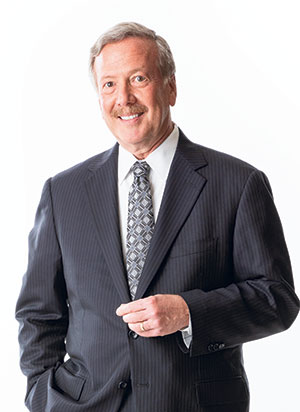Unlike most CEOs whose companies sell to private equity, Jerry Hyman is still around and very much the captain of the ship at TriMark USA. Now on its fourth private-equity partnership in the past 20 years, he’s become skilled at navigating those sometimes shark-infested waters, honing an approach that doesn’t just satisfy profit-hungry PE partners but that ultimately adds value to the company and, in turn, to its customers.
 Jerry Hyman. Photo by Scott Cook PhotographyFE&S: Selling to private equity is often considered akin to making a deal with the devil. Why don’t you see it that way?
Jerry Hyman. Photo by Scott Cook PhotographyFE&S: Selling to private equity is often considered akin to making a deal with the devil. Why don’t you see it that way?
Hyman: From the outside looking in, private-equity players often get a bad rap. They’re seen as evil outsiders who swoop in and strip assets out of companies to generate profits for themselves. There are surely some out there who do that, but our experience has been the opposite. It is because of the investments that our private-equity sponsors were willing to make in the company that enabled us to grow to nearly $2 billion in sales, to establish a strong national footprint, to provide our customers with better products and services, and to create thousands of jobs in the industry that didn’t exist. None of that would have been possible as a privately held, family-owned company. So for us, private equity has been the opposite of a slash-and-burn strategy.
FE&S: What else do people misread most about TriMark’s funding by private equity?
Hyman: One thing that most people don’t realize is that with every change of private-equity sponsor, TriMark’s senior management has always retained a significant share of ownership in the company. Every time we’ve sold, it’s been a liquidity event for the private-equity partner, of course, but also for management. And every time, management has chosen to reinvest back in the company. A second misperception is that PE-funded acquisitions tell our whole growth story. In fact, our growth has always been 50 percent acquisition and 50 percent organic.
FE&S: Does TriMark’s management team have much say have when a private-equity partner is ready to sell?
Hyman: Yes, and it’s because we’ve chosen wisely that we’ve been able to handle four different partners so far. I learned early on that what private-equity is buying, at least in this industry, is the management team; they’re not buying buildings or inventory or customer lists. And because of that, management has a lot of influence as to who our next private-equity partner would be. Sometimes, it’s not the one that comes in with the highest price. If I don’t think I can work with whoever’s offering the highest price, I have an obligation to tell the current owners. They can take it if they want, of course, because they own most of the stock and it’s their job to make as much as they can on a deal. But I’d have an obligation to tell them that I — and half of the management team — would leave if we didn’t think we could work with whoever that highest bidder might be. We’re all still here.
FE&S: Even in the best partnership situations, TriMark has nonetheless had a change of PE ownership every few years. How do you handle that from a leadership and strategy standpoint?
Hyman: Again, it comes down to choosing the right kind of partners. Not only are there good and not-so-good private-equity firms, but there are also private-equity companies that have different philosophies as to how they hold their portfolio companies. We have always chosen sponsors that only get involved at the highest, board of directors level and that stay completely out of day-to-day operations of the company. In 20 years, there has never been one of our PE partners at any of our buying group meetings, at any of our industry conferences or in any of our leadership meetings. They invest in us and leave us to lead and manage and grow the company.



